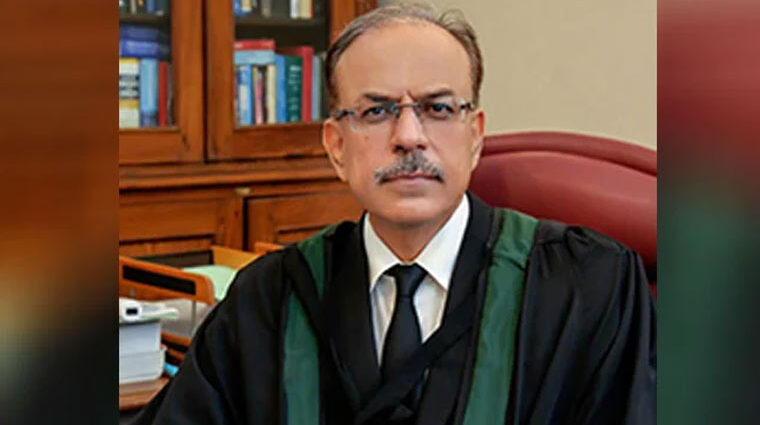Amendments to Laws Essential for Virtual Assets and Cryptocurrency Cases: Chief Justice Sindh High Court
Karachi ( Web News )
Chief Justice of the Sindh High Court, Justice Muhammad Junaid Ghaffar, has emphasized that significant amendments to existing laws are imperative in order to effectively address cases involving virtual assets and cryptocurrencies.
Addressing a conference on digital and virtual assets held at the Sindh Judicial Academy in Karachi, Justice Ghaffar underscored that the matter of digital assets requires urgent attention. He noted that for many individuals, cryptocurrencies and virtual assets remain a relatively new concept. The Federal Investigation Agency (FIA) has already registered numerous cases concerning online businesses, while courts continue to encounter matters related to concealed or unlawfully transferred assets.
The Chief Justice stressed the need for specialized training for judges in this evolving field. He observed that despite legislative efforts regarding cryptocurrencies and blockchain technology, the government itself continues to harbor reservations. The State Bank of Pakistan, he recalled, had previously imposed a ban on digital currencies and cryptocurrencies, and the government has yet to lift this restriction due to ongoing concerns.
Citing the Finance Minister, Justice Ghaffar noted that only 15 percent of the population utilizes cryptocurrency exchanges. He further highlighted the risk of Pakistan facing scrutiny or being placed on the Financial Action Task Force (FATF) grey list over crypto-related issues, adding that the government is therefore proceeding with caution.
He maintained that until the State Bank revisits its policy on the ban, no substantial progress can be made. Due to existing legal constraints, the Sindh High Court cannot engage in public-private partnerships, though it is actively working towards the digitization of court records as part of a gradual process of digital transformation.
Referring to the recently reviewed ordinance on cryptocurrencies, Justice Ghaffar pointed out that the role of courts and tribunals in handling such matters has not been clearly defined. The ordinance allows for existing tribunals to be vested with jurisdiction until a dedicated tribunal is established.
Justice Ghaffar concluded by stressing that multiple legal amendments will be necessary before courts can effectively adjudicate cases involving virtual assets and cryptocurrencies. “Courts do not make laws; they only interpret them,” he remarked.

